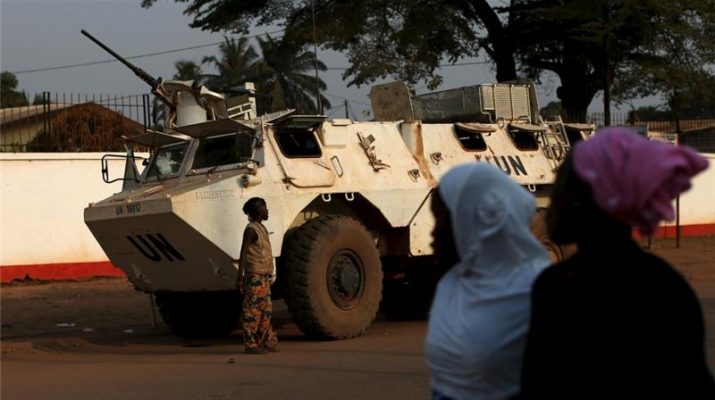Renewed deadly violence in the Central African Republic (CAR) has forced more than 20,000 people to flee to a UN base to seek safety and shelter.
Tensions in the town of Kaga Bandero, in northern CAR, have also risen to such an extent that humanitarian workers have suspended relief efforts in the area, leaving thousands vulnerable.
“The prevailing insecurity makes the work of humanitarian partners more difficult in terms of access to the vulnerable population as it narrows down humanitarian space,” Yaye Nabo Sene, spokesperson at the UN Office for the Coordination of Humanitarian Affairs in the capital Bangui, told Al Jazeera on Sunday.
The withdrawal of the World Food Programme because of security concerns will impact about 120,000 people dependent on food supplies, and 35,000 others living precariously in surrounding camps for internally displaced people (IDPs).
Kaga Bandero has been hit by a barrage of attacks by armed groups since September.
The departure of humanitarian workers follows a string of incidents, including armed robberies. The UN says between 9-16, more than 16 security violations were registered.
Houses have been razed and three sites for IDPs have been attacked, forcing civilians to seek help at the UN stabilization mission base (MINUSCA) in the area.
Sene said local authorities had allocated land for those now living in and around the base, and they would be relocated within a week.
At least 65 people have been killed over the past four weeks in violence across the western, eastern and central parts of the country
Last week, 25 people were killed in two days of violence in and around the town of Bambari. Earlier in the month, 40 people – including three school teachers – were killed when Kaga Bandero town was attacked, allegedly by ex-Seleka rebels. The UN repelled the attack, killing 12 fighters.
Vladimir Monteiro, MINUSCA’s spokesperson in Bangui, told Al Jazeera the violence over the past month and a half has been perpetuated by “armed groups who have been manipulated”.
“Some of the actions are being fuelled by politicians who are against the government. Eleven out of the 13 armed groups are in talks with government, but there are others who are looking to create instability in the country,” Monteiro said.
He added with the end of the rainy season, not all the violence was political, with some likely stemming from conflict over cattle.
CAR has struggled with political insecurity ever since the Seleka rebels, a Muslim-led armed group, overthrew the government in a 2003 coup, leading to a series of atrocities and then reprisal attacks by a viglante group called the anti-Balaka, made up of Christian and animist fighters.
More than 400,000 people have been displaced internally and almost half a million others have fled to neighbouring countries.

